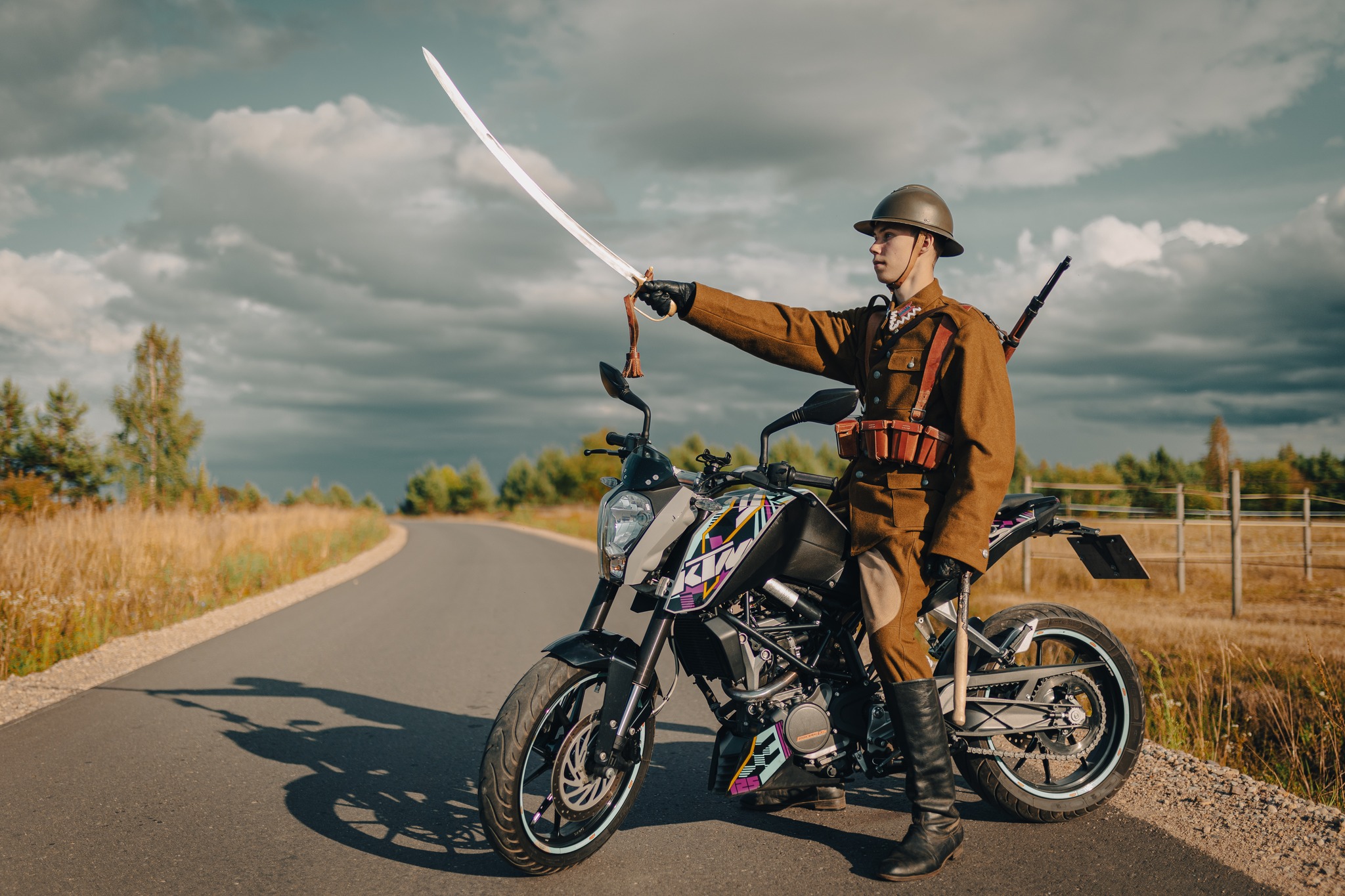- August 12, 2023
- 436
How to convince young people to the Uhlan tradition?

For the third time, young people from the Vilnius region could take part in the “Uhlan patrol” camp, which was organized by the historical reenactment group “Garnizon Nowa Wilejka” together with the Vilnius branch of the Union of Poles in Lithuania.
This time the “Uhlan patrol” alluded to a much older tradition. Through the youth camp, the organizers decided to celebrate the 160th anniversary of the January Uprising. As every year, the camp required unusual skills from the participants. During the classes they could learn the drill, shooting, using a sabre, as well as cutting with a lance. They could also see historical uniforms and check if they feel good in them.„For many participants, it was not a surprise as many of them had already participated in the camp for the third time. Perhaps it may not be a way of spending time for everyone, but there are many young people who can be easily convinced to the Uhlan tradition and thus encourage them to learn about history” says Waldemar Szełkowski the president of the historical reenactment group “Garnizon Nowa Wilejka”.
The young people were allowed to get acquainted with cold steels which are of great importance to the Polish military tradition.
Every year one of the biggest attractions of the event is horse riding lessons.„For many participants of the camp, this is the first opportunity to try their hand in the saddle. Some of the participants decide to start training after the camps, for others it remains a sporadic experience. However, it is always an enriching experience. Of course, we show that a horse is not a toy and that you must take care of it. Not only do you give him food, drink, prepare him for a ride but also you have to clean up after him.” Explains the interlocutor of “ Kurier Wileński”. As Szełkowski notes, it is the last thing that evokes the least enthusiasm among the camp participants, however, one cannot escape from the duty. Classes with weapons are also primarily aimed at awaking responsibility.„ We not only allow young people to familiarise themselves with firearms but also with cold steel, which is not used nowadays but is of great importance to the Polish military. The first thing we explain is that it can be a dangerous tool, that it cannot be used, carried, or touched, without being aware of it. You cannot point a gun at someone or use it in an irresponsible way, even when it is not loaded ” says the historian.
Although the club puts special emphasis on continuing the memory and tradition of the 13th Regiment of Vilnius Uhlans which is one of the cavalry formations of the Second Polish Republic, this year’s camp was to remind of another important anniversary.„Through our camp, we decided to celebrate the 160th anniversary of the outbreak of the January Uprising. During the classes, we alluded to the insurgent tradition and we also visited one of the less frequented but significant places of remembrance of the uprising which is the grave of the insurgents from 1863 who died in skirmishes with the tsarist army in the backwoods of the Rudnicka forest” says the organiser. As the historian explains, in 1863 three units of insurgents operated in the backwoods of the Rudnicka forest, including the unit of Ludwik Narbutt- On the 9th of March 1863, this unit was victorious in the Battle of Rudniki. „The Poles lost a few dead and a dozen or so wounded belligerents, who were deployed in the surrounding manors ” says Waldemar Szełkowski. The third edition of the camp was attended by over 20 participants from various age groups. Perhaps some of them will join the ranks of Vilnius reenactors soon, because thanks to the enthusiasts, the memory of the Polish Uhlans is very well preserved in the Vilnius region.
The “Ulhan patrol III” project is financed by means of the Prime Minister’s Office of the Republic of Poland as part of the public task regarding helping the Polish community and Poles abroad in 2023, through the good offices of the Jan Olszewski Foundation “ Aid to Poles in the East”.
Translated by Patrycja Parzych within the framework of a traineeship programme of the European Foundation of Human Rights, www.efhr.eu.

